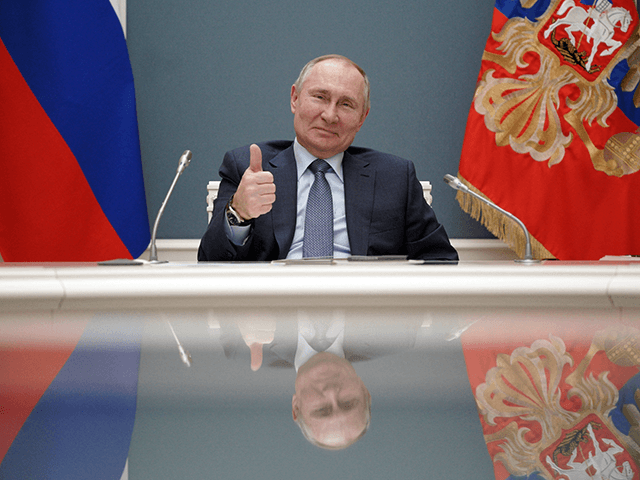The Russian government on Wednesday deflected blame for a myriad of web access issues — including difficulty using Google and YouTube, as well as crashes on government websites — asserting the problems were not the result of the Kremlin’s deliberate slowdown of Twitter.
Russia’s Digital Ministry tweeted Wednesday that several issues with government websites were the result of router malfunctions within PJSC Rostelecom’s network. Rostelecom is Russia’s largest internet service provider.
“Problems with access to a number of government and other sites are associated with malfunctions of routers used in the network of PJSC Rostelecom,” the ministry posted on Twitter. “The company is taking the necessary measures to restore the network functionality.”
The same day, Russia state media monitor Roskomnadzor identified a major fire at a data center in Strasbourg, France, as the source of a major outage inhibiting Russians’ access to Google and YouTube.
Cloud services provider OVH, which runs the data center, confirmed the fire had caused severe damage to the facility and directly impacted service.
The major outages to internet services in Russia coincide with the Kremlin’s deliberate slowdown of Twitter, which came after the company reportedly “failed to delete more than 3,000 tweets containing calls for minors to commit suicide, child pornography and drugs since 2017,” according the Moscow Times. Roskomnadzor orchestrated the slowdown, which is now in effect.
Moscow has been at odds with major tech companies, including Twitter and Google, over their refusal to censor what the government deems illegal content, particularly content related to the ongoing protests over the arrest of prominent dissident Alexei Navalny.
Navalny’s supporters have made extensive use of social media to organize protests against his continued detention, with their content amassing over 200 million cumulative views within weeks of the protests’ outbreak.
In Russia, it is a crime to incite minors to attend illegal gatherings, which face unusually tough restrictions due to the coronavirus pandemic. The distribution of such content thrust social media company TikTok into a row with the Russian government in late January.
By March, the Kremlin had escalated its activities from simple pressure campaigns against tech companies to remove the offending content to lawsuits over their continued refusal to do so. In the lawsuits, Roskomnadzor slammed the tech companies – particularly Google, Twitter, and Facebook – for refusing to delete content “enticing teenagers to wrongful activities such as participation in unsanctioned public events.”
The state media monitor is pushing other legal challenges against TikTok, Telegram, Instagram, and YouTube over similar concerns.

COMMENTS
Please let us know if you're having issues with commenting.